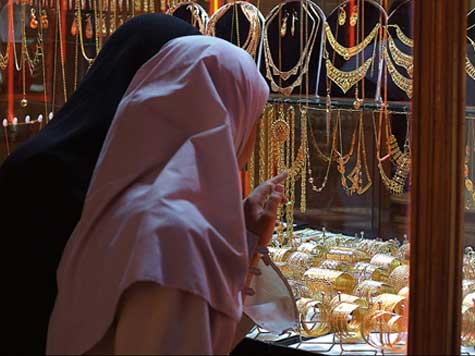
Since U.S. sanctions have dramatically cut the Islamic Republic’s ability to obtain financing via the dollar and euro, Tehran is aiming to use gold to deal in the world market. The republic is seeking to evade sanctions imposed by the United States, which were implemented earlier this year as a deterrent to continue building its nuclear program.
According to a Thursday Reuters report, Iran has also used yen to buy large volumes of wheat and has already purchased a minimum of 200,000 tons of wheat on the soft market, mostly from Australia.
According to a Christian Science Monitor Report:
Iran, which is still in the market to buy additional wheat supplies, is also considering barter deals to feed its 74 million people weeks before a presidential election, they said.
Grain ships are stuck outside Iranian ports and exports of staples to Iran such as maize, sugar, palm oil and rice are being hindered as collecting payment from buyers gets harder.
“Grain deals are being paid for in gold bullion and barter deals involving oil are being offered,” one trader said. “Some of the major trading houses are involved,” he added.
Traders said details of how barter deals work were still unclear as the problem had developed so quickly.
Iranian buyers have in the past side-stepped sanctions by booking business through third countries, especially Dubai in the United Arab Emirates, traders said. But this option had been suddenly closed as the UAE was not allowing sanction-breaking finance, they said.
“As the shipments of grain are so large, barter or gold payments are the quickest option,” another trader said.
Friday morning the Associated Press reported that despite US pressure to comply with American sanctions, the Indian Prime Minister, Manmohan Singh was insisting that diplomacy was the best way to deal with Iran.
ABC News described India is considered to be an “energy starved” country, which has a heavy dependence on important Iranian oil.
“There have been problems with regard to Iran’s nuclear program,” Singh told reporters after meeting with the president of the European Union. “We sincerely believe that this issue can be and should be resolved by giving maximum scope to diplomacy.”
ABC reported:
EU President Herman Van Rompuy said he would ask Singh to use India’s leverage to help bring Iran back to the negotiating table.
Iran is India’s second-largest crude oil supplier after Saudi Arabia and according to media reports imports 550,000 barrels a day.
Sanctions on Iran had long made that trade difficult, because Indian oil importers had to scramble to find banks willing to handle transactions with Tehran.
But last week, Iran’s ambassador to India said the two countries had reached an agreement to make the trade easier. Under the agreement, India will make 45 percent of its payments for Iranian crude oil in rupees and pay the rest by investing in Iranian infrastructure projects. Iran, meanwhile, will use those rupees to buy Indian goods, including machinery, iron, steel, minerals and automobiles, said Ambassador Seyed Mehdi Nabizadeh.
A Reuters report also published Friday quoted the International Energy Agency sanctions were already affecting the Iranian trade flow even though a European ban does not go into effect until July. The agency reportedly has said that it predicts the sanctions could collectively curb the exportation of more than 600,000 barrels per day sold last year to the EU.
Reuters also reported that Iran is already having problems with China, which bought about 550,000 barrels per day totaling about 20 percent of Iran’s imports. In the first quarter of 2012, China only bought half its 2011 volumes although these reductions were reportedly due to price disputes as opposed to sanctions.

COMMENTS
Please let us know if you're having issues with commenting.